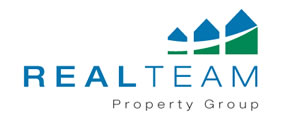June 30th is just a few days away!
Depending on your investment property assets, several thoughts come to mind:
 If any part of your rental property is more recent than 1986, you may be able to claim depreciation. Speak with your accountant for details; you could also obtain ATO publication NAT 1729 from http://www.ato.gov.au. There’s a detailed list of depreciable items commonly associated with rental property, together with allowable depreciation rates, which of course vary from item to item. If all this is too daunting, contact RealTeam, and we’ll put you in touch with depreciation specialists who can provide a detailed depreciation schedule, accepted by the Australian Tax Office, and which your accountant can use when preparing your tax return. Once this schedule has been done, it can be used in successive years, up to 40 years into the future.
If any part of your rental property is more recent than 1986, you may be able to claim depreciation. Speak with your accountant for details; you could also obtain ATO publication NAT 1729 from http://www.ato.gov.au. There’s a detailed list of depreciable items commonly associated with rental property, together with allowable depreciation rates, which of course vary from item to item. If all this is too daunting, contact RealTeam, and we’ll put you in touch with depreciation specialists who can provide a detailed depreciation schedule, accepted by the Australian Tax Office, and which your accountant can use when preparing your tax return. Once this schedule has been done, it can be used in successive years, up to 40 years into the future.
- If you own rental property in your Self-Managed Superannuation Fund, you may need to provide an updated estimate of the property’s current market value for fund auditing purposes. RealTeam has developed a detailed appraisal, specially designed to address this requirement. Contact us for details.
- It’s getting pretty late now for 2012-13, but if maintenance or repairs or replacements (of items like blinds, light fittings, door hardware etc.), are needed, you might want to bring the work forward and pay for it in June to claim a tax deduction.
- Timing to acquire property – Typically a contract can easily take two full months to settle. To learn how the ATO generally views the purchase and sale dates for tax purposes, go to:
https://www.ato.gov.au/General/Property/Residential-rental-properties/Obtaining-and-owning-a-rental-property/
https://www.ato.gov.au/General/Property/Residential-rental-properties/Selling-a-rental-property/ - If you own rental property outside Australia, Individual Tax Return supplement 71051-06.2012 and ATO publication 1729–6.2012 may be helpful. You can get them here: http://bit.ly/ForeignTaxInfo
Even if it’s too late for this year, talk to your accountant, and to your property manager to find out what maintenance and repairs might be needed in the next few months, then try to schedule the work (and expense) through the coming financial year. That way you’ll, maintain and probably enhance the value of your property, keep your tenant happy, and be organized and armed with more deductions to bring to your accountant this time next year!











